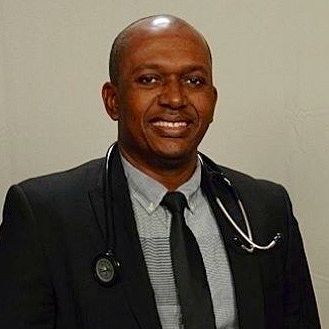
Dr. Jean Michel Amisial, MD
Internist
13936 NW 7th Ave Miami FL, 33168About
Dr. Jean Amisial is an internist practicing in Miami, FL. Dr. Amisial specializes in the medical treatment of adults. Internists can act as a primary physician or a consultant to a primary physician. They manage both common and rare diseases. Dr. Amisial provides comprehensive care and manages treatment with surgeons as well. Internists establish long-term relationships with their patients and incorporate disease prevention and mental health care into their practice.
Education and Training
UniversitÈ d'Etat d'HaÔti FacultÈ de MÈdecine et de Pharmacie
Provider Details
Areas of expertise and specialization
Treatments
- Kidney Stones
- Heart Disease
- Heart Failure
- Epilepsy
- Psychosis
- Hives
- Gallstones
- Pain
- Leg Ulcer
- Vascular Disease
Professional Memberships
- American Medical Association
- Haitian American Physicians Abroad
Professional Society Memberships
- AMA, Haitian Physicians Abroad
What do you attribute your success to?
- Caring for his patients
Dr. Jean Michel Amisial, MD's Practice location
Jean Michel Amisial
13936 NW 7th Ave -Miami, FL 33168Get Direction
Dr. Jean Michel Amisial, MD's reviews
Write ReviewPatient Experience with Dr. Amisial
Recommended Articles
- How Can I Improve my Metabolic Rate?
A number of factors, apart from your genes, decide the rate at which food is broken down in our body to release much needed energy. This includes body size, age, gender, hormonal levels, and physical activity. Thankfully, metabolic rate can be increased, irrespective of gender, body size, or age.Of...
- Background Noise from Televisions Can Affect Your Child's Ability to Learn
Background noise from the TV, when we leave it on without watching it, may affect young children, reports a new study. The study also reports that children in U.S. are exposed to an average of four hours of background noise from the TV. The results from the study were presented in the International...
- What Is Tramadol Used For?
Tramadol, sold under the brand name "Ultram" in the United States, is a synthetic opioid analgesic used to manage moderate to moderately-severe pain. It is generally used to relieve pain as that experienced during chronic conditions like arthritis or after surgery. Tramadol Hcl 50 mg also arrives in...
- How Do Kidney Stones Develop?
Kidney stones are a condition that affects around 15 percent of the world's population. For reasons unknown, the condition's prevalence has increased over the last 30 years. Kidney stones more often affect men than women. What are kidney stones?Kidney stones or renal lithiasis is the formation of...
- Foods to Avoid If You Have Diarrhea
Diarrhea is a condition characterized by loose or watery stools that occur more than three times a day. Typically, the condition lasts for about two to three days and then resolves on its own. The symptoms of diarrhea include watery stools, bloating, stomach cramps, gas, and nausea.Diarrhea can lead...
- Are You a Mindless Eater?
Mindless eating is the tendency to eat even when you're not even hungry. This phrase was coined by food psychologist Brian Wansink, PhD of Cornell University, to describe subconscious eating habits that may lead to weight gain. Wansink declared that many people, especially in the U.S., have "eyes...
Nearby Providers
- Dr. Mark Kutner MD10095 N Kendall Dr Miami FL 33176
- Dr. Roberto Aguirre M.D.9810 North West Terrace Voral FL 33178
- Dr. Oliver Di Pietro M.D.1045 95th Street Bay Harbor Islands Florida 33154
- Dr. Alejandro Loynaz MD2601 Southwest 37th Avenue Miami Florida 33133
- Ronald Pachon M.D.1600 S ANDREWS AVE FORT LAUDERDALE FL 33316
- Dr. Teresa B. Alfonso M.D.6498 CORAL WAY MIAMI FL 33155










